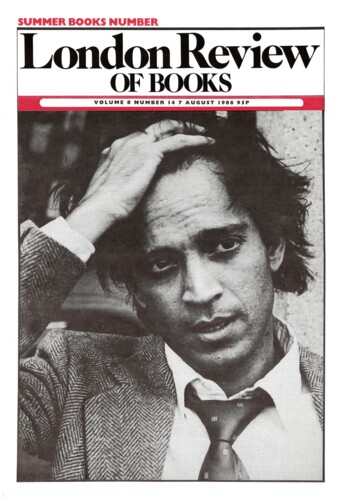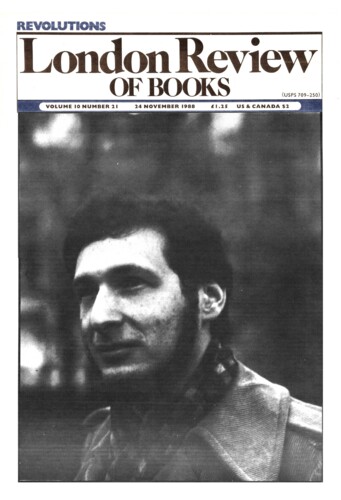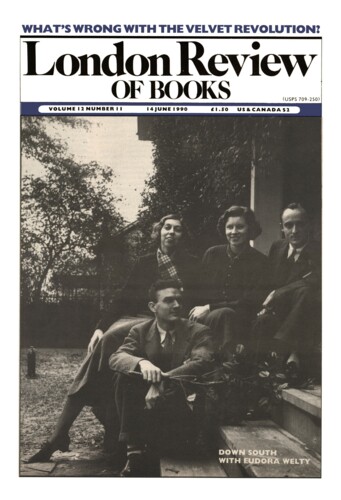George Bernard
George Bernard whose books include The Power of the Early Tudor Nobility, teaches history at the University of Southampton.
Sidney’s Kidney
24 November 1988
Tolerant Repression
10 May 1990
Protestant Country
George Bernard, 14 June 1990
Henry VIII’s jurisidictional quarrel with the Papacy was not resolved, and its consequences are with us still. In Henry’s eyes the dispute was one of authority, not doctrine, but doctrinal questions soon became involved. His quarrel coincided with religious ferment on the Continent and with the emergence of religious diversity in England, as the religious teachings of Luther and Zwingli spread in the late 1520s and early 1530s. But for the divorce, Henry would no doubt have continued to stand firm against heresy, and he might well have been successful. But once he had broken with Rome and asserted his royal supremacy over the Church, he relaxed his persecution of dissent. He needed his royal supremacy preached up and down the land. And who better to preach it than Thomas Cranmer or Hugh Latimer, full of Continental learning, opposed to Papal pretensions, and keen to see Henry as a godly prince who would destroy idolatry and embrace true religion. Henry had not intended to go so far along that road of reformation, but he had unleashed a process that proved lasting.
Pieces about George Bernard in the LRB
A Very Active Captain: Henricentrism
Patrick Collinson, 22 June 2006
Henry VIII is the most immediately recognisable of all English monarchs, present company excepted. He has been declared a national icon, and we are told that he vies with Adolf Hitler for the...
Types of Ambiguity
Conrad Russell, 22 January 1987
The Church shall not so expound one place of Scripture that it shall be repugnant to another. Of all the Thirty-Nine Articles, this is perhaps the most difficult, yet it lays down a scholarly...
Read anywhere with the London Review of Books app, available now from the App Store for Apple devices, Google Play for Android devices and Amazon for your Kindle Fire.
Sign up to our newsletter
For highlights from the latest issue, our archive and the blog, as well as news, events and exclusive promotions.




